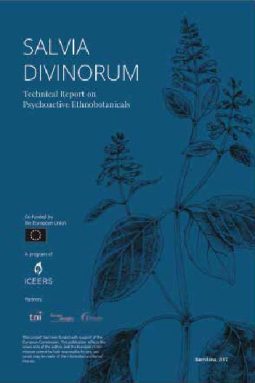Can ayahuasca increase well-being and decrease problematic alcohol use? In recent years, a number of studies have demonstrated the therapeutic potential of psychoactive plants, such as ayahuasca. Recent findings from an open and controlled study on ayahuasca demonstrated that a single dose of ayahuasca has antidepressant and anxiolytic effects when administered to patients with major depression. One area that remains to be studied is ayahuasca’s possible therapeutic role in the treatment of problematic alcohol use. Although anecdotal reports and observational studies have suggested that the regular use of ayahuasca seems to be associated with lower use of drugs, such as alcohol and cocaine, randomized and placebo-controlled studies have not yet been carried out.
Ayahuasca and well-being
A recent observational study, conducted by English researchers in collaboration with our research group in Brazil, has interesting findings relating to alcohol use. Researchers used data from an the Global Drug Use Survey, which was completed between 2015 and 2016 by almost one hundred thousand drug users, which included almost nineteen thousand users of classic hallucinogens (LSD and psilocybin mushrooms) and just over five hundred users of ayahuasca. Although both groups reported more problematic alcohol use than non-users of these substances, it was observed that in the last year, ayahuasca users drank less problematically than users of LSD and psilocybin and they also reported better well-being.
It was also observed that the ayahuasca users had a higher incidence of mental disorders – although this was only in users from countries where there is no traditional use of ayahuasca – which could suggest that they are people who sought out ayahuasca as a form of treatment. The fact that most users have consumed ayahuasca with a therapist or shaman also suggests that it is used in a more therapeutic and ritualized context than the recreational use of LSD or mushrooms. Additionally, ayahuasca was classified as less pleasant than the other hallucinogens and users reported less of a desire to use ayahuasca again than LSD or mushrooms.
All this suggests that ayahuasca seems to be different from the other hallucinogens, being used more in traditional contexts or rituals and with the intention of therapeutic use. Considering these data, which are observational, with the largest sample of ayahuasca users to date, the next step will be the completion of a randomized, placebo-controlled clinical study. In collaboration with the English research group, we are planning the execution of this study.
Rafael Guimarães dos Santos, PhD
Department of Neuroscience and Behavioral Sciences, Faculty of Medicine of the
University of São Paulo, Ribeirão Preto, Brazil
Member of the ICEERS Scientific Advisory Board
Categories:
NEWS
Tags:
ayahuasca
, scientific research


